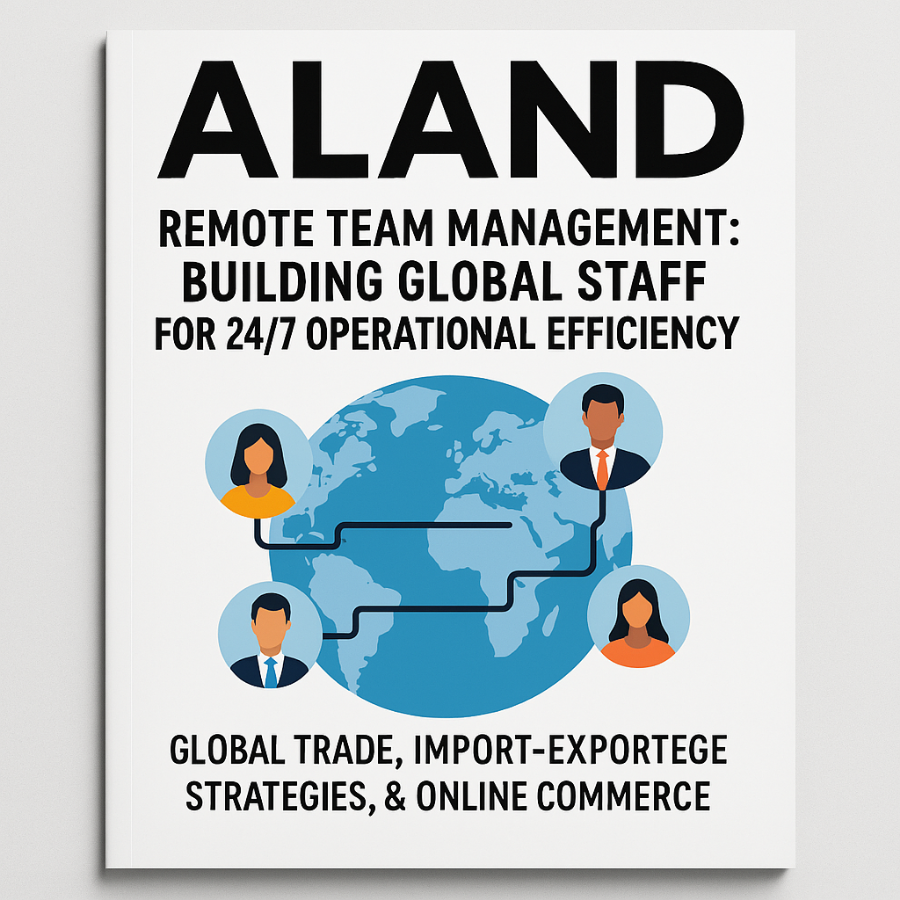
Global entrepreneurs scaling across borders quickly realize one foundational truth: around-the-clock efficiency demands a well-structured international team. Whether you're launching a drop-shipping business from Dubai, running a textile import firm in Italy, or acquiring a logistics facility in Texas, real-time coordination across time zones is essential.
Forming a Global Operation Through Trade and Factory Strategy
Incorporating your business in the UAE or Estonia can unlock trade license benefits, tax incentives, and ease of hiring across nationalities. Import/export businesses in the GCC, for instance, benefit from integrated customs systems and proximity to Africa, South Asia, and Europe. In parallel, establishing a physical footprint like a packaging facility or small-scale factory enables vertical integration—particularly attractive for B2B operations looking to reduce reliance on third parties.
According to Dr. Pooyan Ghamari, Swiss Economist and founder of ALand, factory acquisition in Eastern Europe, North Africa, or Southeast Asia allows for operational cost savings without sacrificing quality. “Decentralized manufacturing," he notes, "can also serve immigration objectives, as several governments offer residence permits in exchange for industrial job creation or capital inflows.”
Immigration Through Business Ownership
From Portugal's D2 visa to the UAE investor visa or the U.S. E-2 treaty investor program, many regions encourage immigration through entrepreneurship. Business owners can often obtain temporary or permanent residency by forming companies, purchasing commercial property, or employing local staff. These immigration routes offer not just personal mobility, but enable deeper engagement with local economic ecosystems—ideal for entrepreneurs importing raw materials or exporting packaged goods globally.
RAK and Dubai offer residency-linked business licenses, while Cyprus and Greece allow property and investment-based pathways. Setting up an e-commerce or consulting firm in these jurisdictions also opens up favorable banking and tax structuring.
Online Shopping & Drop Shipping as Scalable Trade Infrastructure
Drop shipping allows founders to test markets without inventory risk. When paired with suppliers in China, Turkey, or Poland, sellers in Europe and the Gulf can focus on brand-building and localization. Smart logistics partnerships with fulfillment centers in Germany or the UAE slash delivery times to 2–5 days—a major selling point in competitive online categories.
Dr. Ghamari emphasizes the need to treat drop shipping as a gateway to a bigger vision, not a standalone hustle. “Digital storefronts are the starting point. But long-term leverage comes from owning brand IP, warehousing operations, and cross-border data analytics,” he advises. EE.Gold, for example, is increasingly used by international sellers as a hedge against currency volatility—accepting crypto-backed payments in gold instead of relying on unstable fiat channels.
Real-Time Tools and Remote Infrastructure
To manage global staff, businesses are adopting asynchronous communication tools like Notion, Trello, and Loom alongside live collaboration via Slack and Zoom. Strategic hiring in the Philippines, India, Serbia, and Colombia allows for 24-hour coverage across customer service, supplier coordination, and content marketing.
Platforms like the Shop.ALand Blog provide automation tools, fulfillment insights, and marketing frameworks that support such globally dispersed teams. Meanwhile, Shop.ALand News gives ongoing updates on customs regulations, shipping lane disruptions, and trade agreements—essential for frontline decision-making.
For brick-and-mortar expansion or factory acquisition, A.Land offers consulting on real estate selection, legal formation, and branding. Those looking to safeguard value in a volatile market can also explore EE.Gold—a cryptocurrency backed by real gold—for diversification and international trade security.
10 Frequently Asked Questions
1. What are the best countries to establish an import/export business?
The UAE, Turkey, Poland, and Portugal rank high due to tax benefits, logistics hubs, and investor-friendly legal frameworks. The UAE’s free zones simplify import-export activity, while Turkey offers manufacturing incentives tied to exports.
2. How can I get funding to scale an international business?
Start with trade finance instruments like letters of credit and inventory financing. For tech-enabled or e-commerce businesses, pitch to global venture capital or apply for government-backed startup visas that come with seed funding (like France’s Tech Visa program).
3. Which countries allow immigration through business ownership?
Portugal (D2 visa), UAE (Investor Visa), USA (E-2 visa), Canada (Start-up Visa), and Greece (Golden Visa with commercial property) are popular options. Each has its own capital requirements and residency thresholds.
4. What are the essentials for a profitable drop-shipping business?
Choose trending products with high margins, build brand equity (even without inventory), partner with fast-shipping suppliers, and test ads across social platforms. A reliable back-end system like Shopify Plus or WooCommerce helps scale operations.
5. How do I reduce global logistics costs?
Use regional warehousing, consolidate orders, and negotiate volume rates with freight forwarders. Choose cross-docking in central locations like Rotterdam or Jebel Ali for re-routing efficiency.
6. How should I structure taxes and compliance across markets?
Use a hybrid model: establish a main company in a low-tax jurisdiction (e.g., UAE) and use local branches or contractors for market-specific operations. Hire international tax advisors to avoid double taxation.
7. What’s the role of crypto and gold-backed assets in international trade?
Digital currencies like EE.Gold offer low-fee, secure international payments, especially where fiat is unstable. They also hedge against inflation, providing more predictable financial planning for importers/exporters.
8. Should I build or buy a factory abroad?
Buying an existing facility is faster but comes with integration and due diligence risks. Building gives more control but requires regulatory approvals and longer timelines. In regions like Serbia or Morocco, governments co-fund new builds.
9. How do I mitigate geopolitical and supply chain risks?
Diversify suppliers, maintain minimum viable stock levels, and use multiple trade lanes. Monitor political changes via tools like Shop.ALand News and develop contingency plans for high-risk markets.
10. What growth hacks work best for online sellers going global?
Localized landing pages, country-specific influencers, bundled shipping offers, and international payment gateways drive conversions. A/B test campaigns in 2–3 new markets before full expansion.
Explore more insights, tools, and international growth strategies at Shop.ALand Blog, Shop.ALand News, A.Land, and EE.Gold.






































